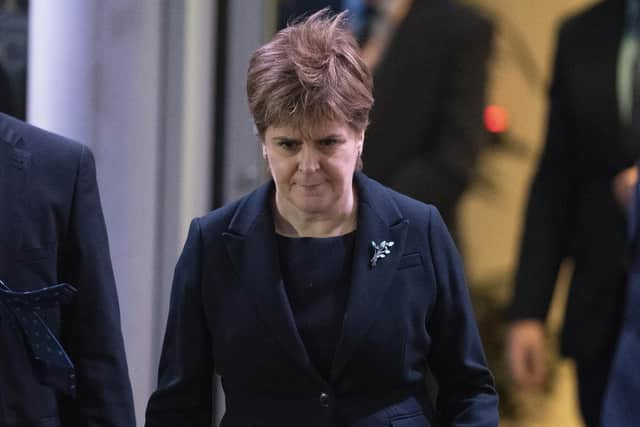UK Covid Inquiry: Nicola Sturgeon's credibility lies in tatters – Scotsman comment
Nicola Sturgeon’s appearance at the UK Covid Inquiry, marked by forensic questioning and occasional displays of emotion, was not littered with bombshell revelations but still proved devastating to her reputation for sound handling of this deadly crisis. Again and again, she was forced to ask us to ignore the evidence in front of our eyes and, instead, believe her version of events.
We were asked to believe that the Scottish Government’s response to the pandemic was based purely on health grounds and that Sturgeon and her ministers took decisions without taking into consideration the political implications for their lifelong ambition of independence. Yet a message sent from the then Deputy First Minister John Swinney’s email in July 2020 to Sturgeon and others warned that a failure to add Spain to countries excluded from a travel ban would be remembered by the Madrid government and that “there is a real possibility they won't approve EU membership for independent Scotland as a result”.
Advertisement
Hide AdAdvertisement
Hide AdThe minutes of a Cabinet meeting in June 2020 recorded that ministers had “agreed that consideration should be given to restarting work on independence and a referendum, with the arguments reflecting the experience of the coronavirus crisis...” But Sturgeon insisted it was not “fair and accurate” to say that this showed they were politicising the pandemic.
We were asked to believe that Sturgeon’s deleted WhatsApps were not relevant to the inquiry – even though one message that survived the cull showed her senior aide Liz Lloyd expressing a desire for a “rammy” with the UK Government. And that when she told journalists her WhatsApps would be handed to the inquiry – at a time when she was routinely deleting them – this was a minor mistake, almost a slip of the tongue.
False hope of ‘eliminating’ Covid
We were asked to believe that the ‘Gold Command’ group of ministers and advisers took no decisions, issued no commands. Much like WhatsApp, it was not a decision-making forum. That task, Sturgeon insisted, was carried out by Cabinet and fully minuted – unlike Gold Command whose proceedings remain so shrouded in mystery that the Covid Inquiry has struggled to work out when it even held meetings. She had not, we were told, sought to monopolise control of decision-making or excluded others like Finance Secretary Kate Forbes, who initially did not know of Gold Command’s existence.
We were asked to believe that Sturgeon sought to “eliminate” Covid – despite most experts warning that the virus was here to stay and this strategy could backfire – for reasons that were nothing to do with being different to and better than the UK Government in order to promote the cause of independence. She continued to insist that Scotland’s death rate was better than elsewhere in the UK, citing one study that she regards as authoritative, even though, over the whole of the pandemic, Scotland and England’s figures were broadly similar, with deaths about three per cent above expected levels.


For all but her most devoted followers, Sturgeon’s credibility has surely been stretched beyond breaking point. Perhaps she convinced herself that trying to be better than Westminster would be good for the country as well as the cause of independence, but in reaching for the false hope of eliminating Covid she betrayed a desire for Scottish exceptionalism that seemingly, in her mind, over-rode the expert consensus. Despite Sturgeon’s appeals, it is hard to avoid the conclusion that this mindset is what the widespread culture of secrecy within Sturgeon’s government – the missing WhatsApps, the lack of Gold Command minutes, the instructions to delete messages to defeat freedom of information requests – was designed to obscure.
Comments
Want to join the conversation? Please or to comment on this article.
